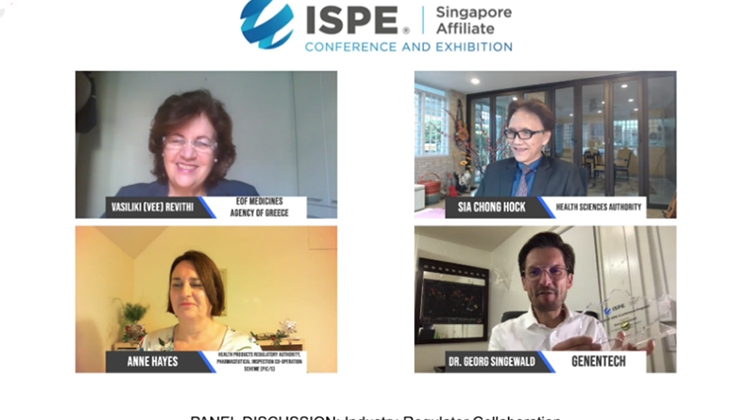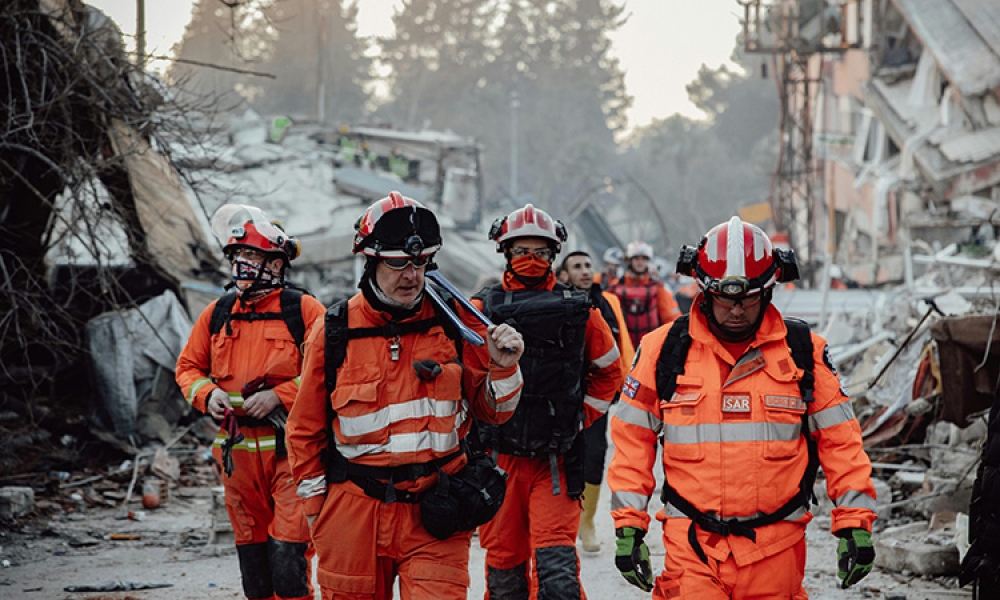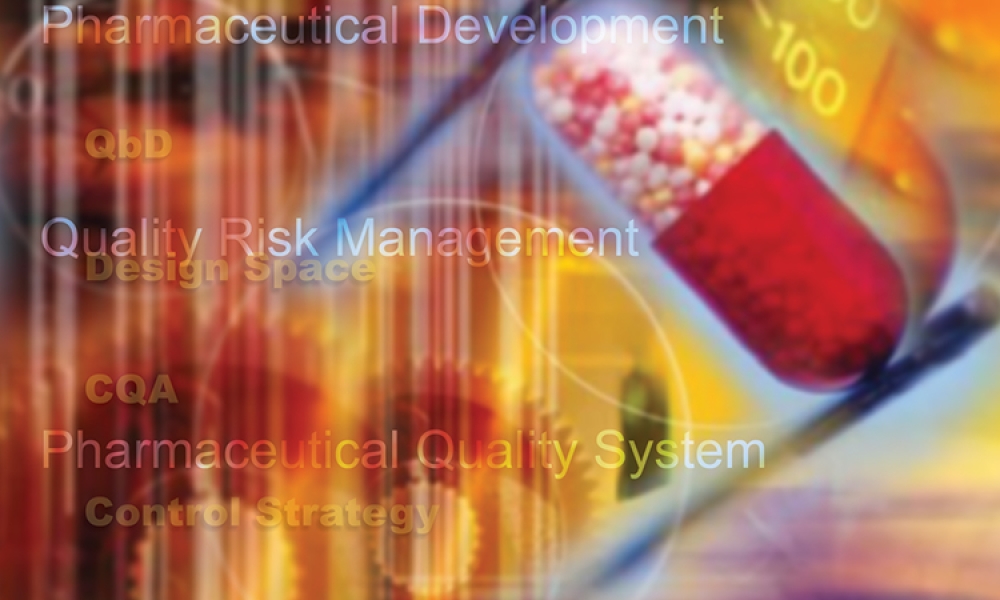HPRA and HSA Regulators on Industry & Regulator Collaboration

At the ISPE Singapore Affiliate’s 20th Anniversary Conference on 9-12 December 2020, two international regulators and a senior representative from industry discussed current and future collaboration between industry and regulatory authorities.
The regulators on the panel were:
General Question for each panelist:
Each panelist was asked for their opinion on the following observation:
- We all acknowledge that the pandemic era has changed dramatically the way that Regulatory Authorities inspect and regulate industry so that cooperation between them works to the best for the patient. Also, industry works closer together on topics of compliance, innovation and technical sharing.
- Which are the main issues that have to be addressed urgently in the pandemic era through cooperation between regulatory authorities and industry?
- How can we adjust our work together to a more efficient cooperation?
- What are the most significant tools towards that goal?
Anne Hayes indicated that one of the main issues to be addressed was the supply of essential medicines which needed industry input and collaboration to identify stock levels, supply chain difficulties and how any shortages will impact patients.
Georg Singewald indicated that many essential medicines were older products and the challenge for industry was to increase capacity using older manufacturing methods or to transfer to another site where such methods were available. He said that there were now new technologies and techniques such as real-time-release which allowed for faster release of products to the market, but this needs communication/collaboration with regulators.
Sia Chong Hock said that some positive developments arising from the pandemic have been the publication of advisory documents on remote inspections by the WHO and the International Federation of Pharmaceutical Manufacturers Associations (IFPMA). These had supplemented those already published by various regulators around the world. Another positive development was the close collaboration between industry, regulators, and academia during the development of various COVID-19 vaccines.
Inspector Training:
The moderator indicated that from the start of the pandemic, inspectors were entering the virtual world and needed to learn new skills involving information technology. She asked the panel whether this would continue after the pandemic ends.
Sia Chong Hock indicated that since the start of COVID-19 he had used information technology, including webinars, remote learning and remote teaching, more than any other time in his life. He considered this to be a very effective form of communication and training. He said that the future is bright for remote learning and remote teaching which has the benefit of global outreach, but proper training in IT skills need to be given to those using these tools.
Are Safe Products Being Manufactured?
An audience question asked whether safe products are manufactured and distributed during this period of COVID-19 restrictions.
Anne Hayes indicated that this question is relevant to the work done by PIC/S to harmonize inspection procedures across all member authorities, thereby helping to ensure uniformly safe medicines of good quality during the pandemic.
Georg Singewald said that the risk for industry is “COVID-19 fatigue” resulting in a slippage in quality due to complacency of having previously passed an inspection. Moreover, one could maybe focus more on things that can be proven on documents and not so much on the execution. But overall, he thought that there are systems in place that ensure that safe products are manufactured.
Inspection of New Facilities:
An audience question asked whether a new facility or expansion of old ones are delayed or postponed due to COVID-19, particularly for critical medicines.
Sia Chong Hock indicated that for critical medicines, his Agency used the PIC/S Inspection Reliance initiative or an existing MRA to obtain information on the GMP status of the site. Where such an approach cannot be used, e.g., in the case of India or China, either a distant assessment and/or an on-site inspection needs to be considered – even if this necessitated a 14-day quarantine period by the inspector(s) in the city where the manufacturer was located.
Industry/Regulators Working Together:
An audience question asked whether regulators and industry had worked together on building new procedures to address the new situation of COVID-19.
Anne Hayes indicated that in the area of GMP, industry in Europe had put forward suggestions on how the supply of medicines could work more smoothly and industry had, at the start of the pandemic, requested derogations or exemptions from some of the rules, with some exemptions being granted, e.g., GMP flexibility. Another example was rolling reviews of vaccines, i.e., review of data before applications were made.
Georg Singewald said that another example from Europe was in relation to an agreement on the Qualified Person certification and the amount of time that a QP needed to be on-site during the pandemic.
Virtual vs Live Training:
An audience question asked how much virtual training replaces live training and whether we will be using a hybrid combination of both virtual and live training when the pandemic ends.
Anne Hayes indicated that the use of digital training during the COVID-19 pandemic had highlighted the effectiveness of on-line platforms, as well as the convenience and cost savings that they afforded. However, there are some things that we lose by doing everything on-line, e.g., face-to-face discussion, networking, etc. Her personal opinion was that we are likely to revert to the way we did things in the past for many activities.
Sia Chong Hock indicated that from his experience as a University lecturer, the teacher/student face-to-face interaction was crucial for effective communication and knowledge sharing, particularly concerning hand gestures, body language, voice tone, etc. He gave an analogy of watching a World Cup Soccer match live at the stadium versus watching the same match on TV.
Georg Singewald gave the opinion that training after Covid-19 is likely to be a hybrid model and it will be relatively easy to identify which training needed to be face-to-face (e.g., case studies, aseptic processing, etc.) and which can be on-line.
Disclaimer
This is brief and informal synopsis of discussion among regulators from various countries and regulatory and other organizations during a panel dialogue at the ISPE Singapore Affiliate’s 20th Anniversary Conference on 9-12 December 2020. It has not been vetted by any agency or regulator and does not represent official guidance or policy of the regulatory agencies and organizations cited in this article.







